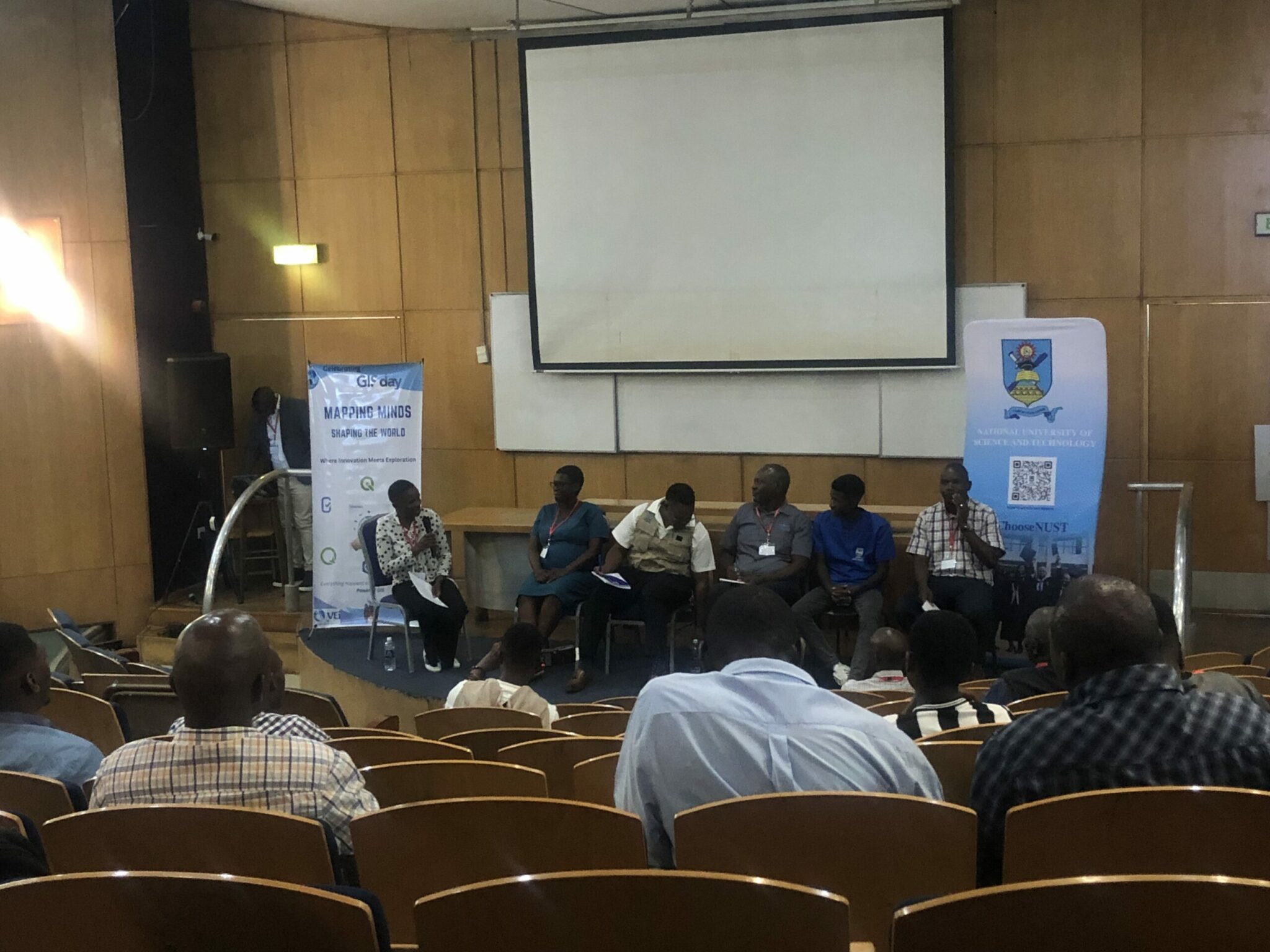By Ndumiso Tshuma
The Bulawayo City Council (BCC), in collaboration with the National University of Science and Technology (NUST), Geographic Information System (GIS) analysts, and various stakeholders, hosted a GIS Day Conference on Wednesday to highlight the growing importance of Geographic Information Systems in decision-making across multiple sectors.
Held at NUST under the theme “Mapping Minds and Shaping the World to Promote Awareness of Geographical Systems,” the event showcased the transformative potential of GIS in finance, health, and water management, while also addressing the challenges facing the profession in Zimbabwe.
Speaking at the event, GIS analyst Roderick Siziba highlighted the pivotal role of GIS in enabling evidence-based decision-making in diverse fields.
“Institutions and businesses use GIS as a scientific tool to support decision-making across finance, health, water, and sanitation sectors,” said Siziba.
Despite its significance, Siziba acknowledged that GIS remains a relatively new and underutilised profession in Zimbabwe.
“This year marks a milestone for Bulawayo, with NUST graduating its first cohort of GIS students after four years of study. However, GIS is still not widely recognised in many areas,” he added.
Mbembesi Council Resources Officer and GIS analyst Cornelious Siziba elaborated on the practical applications of GIS, particularly in climate change analysis and data management.
“We use GIS for storing, retrieving, and analysing data, especially in monitoring climate change. However, the field faces significant challenges, including the need for advanced gadgets with high storage and processing capabilities,” said Cornelious.
He also pointed to manpower shortages and limited financial resources as barriers to growth.
“When it comes to hiring skilled professionals, we’re not yet where we need to be. As a result, we often rely on students for assistance,” he explained.
Shangani Council Manager and GIS analyst Kuthula Ncube echoed these sentiments, noting that GIS is still in its infancy within Zimbabwe’s business sector.
“We are still at a developmental stage and trying to improve. Many of the people we work with are still learning how to use GIS programs. To advance, we need to invest in skilled professionals who can fully realize GIS’s potential,” said Ncube.
The conference underscored the need for greater investment in technology, training, and awareness to ensure GIS can contribute effectively to Zimbabwe’s development.

